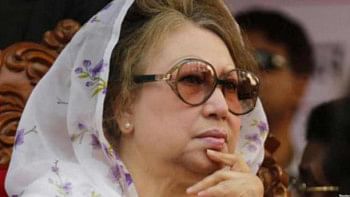Putting Bangladeshi Literary Culture on the World Map

Editor's Note
Two small events that took place early this year in Chicago, perhaps went unnoticed by many, but those herald the official arrival of Bangladeshi writing in an international scenario. Asif Iqbal presents through his musing some of the key points of the Annual Convention of MLA in 2019 and the Conference of SALA.
The year 2019 began with much hope for those of us headed to the Annual Convention of the Modern Language Association (MLA) held in Chicago this year. Chi Town has always held a fascination for me, and more so because I am unable to go there frequently as I have zero driving skills.
This year's conference was significant for quite a few reasons. First, this conference put Bangladeshi literature on the global academic map, as the MLA is the biggest and the most prestigious conference on language and literature in the World. Getting panels approved for the MLA is a very difficult task but we were able to grab attention of the organizers by making a strong case for Bengali and Bangladeshi Anglophone literatures. Second, Professor Kaiser Haq was the heart of the MLA panel "Textual Transactions in Bengali/ Bangladeshi Literature." The panel focused on the importance of literature in the Bengali/ Bangladeshi context. Prof Haq argued that Bangladeshi English language literature has confronted hostility because of Bengali linguistic nationalism. He proceeded to show how that progress in the age of globalization depended on the use of English besides the local language. He also urged us to consider the languages that have remained marginalized in Bangladesh. These languages include Chakma, Koch, Urdu (Bihari).
Our panel was chaired by Dr. Afrin Zeenat, faculty at the Richmond College in Texas. Papers were presented by Dr. Rituparna Mitra, faculty at Marlboro College in Vermont, Dr. Fayeza Hasanat, a faculty member at the University of Central Florida, and myself, a PhD candidate at Michigan State University. The papers presented made a strong case for academic pursuit of literature from Bangladesh as well as Bengali literatures from both India and Bangladesh.
As the MLA panel introduced Bangladesh and its literature and culture to the world, the next conference South Asian Literary Association conference (SALA), held from 6-7 January in the same city also held special event for us. Kaiser Haq was to be awarded for his contribution to the flourishing of Anglophone literary culture in South Asia. We all waited for Prof. Haq to be presented with the Distinguished Award which was done on January 7 during the Closing Ceremony. A proud moment for Bangladesh, the awarding of Kaiser Haq, a prolific translator, a poet and an academician meant a lot for good writers and publishers of Bangladesh. We can no longer ignore the importance of considering our literature and culture from a more open perspective, and we should also be ready to ask questions and learn to dispel our hierarchical and obsequious tradition.

Linguistic nationalism has contributed to what I think is a self-referential literary culture not willing to take up difficult questions of life in an increasingly complicated world. Moreover, the homegrown culture industry's aversion towards other cultural values including the Anglophone is so much so that Kaiser Haq has likened English-language Bangladeshi literature to a hijra, adored when its blessing is sought, and disregarded otherwise. In the recent years, there has been a dearth of good writers from Bangladesh. Contemporary Bengali literature seems to have lost its traction as writers have failed to address issues plaguing the globalized world. We have not seen our writers talking about the problem of migration or the diasporic anxieties that has continued to shape the Bangladeshi society in some significant ways. Yet, we have seen good literatures emerging with writers like Shaheen Akhtar, Hasan Azizul Huq, Selina Hossain and Shahidul Zahir contributing richly. These Bengali-language writers are significant, as is the emergent tradition of Bangladeshi English language writing.
Zia Haider Rahman is one good example, whose debut novel In the Light of What We Know (2014) has received critical claim worldwide. Arif Anwar's The Storm: A Novel (2018) has arrived, but we are yet to see a wider critical response. Then we have translators of repute who would also like to see Bengali literatures from Bangladesh are read outside of the Bengali-language knowing readers. Shabnam Nadiya, a translator and creative writer, has translated Shaheen Akhtar's Sokhi Rangamala recently, as we have come to know that translation of Akhteruzzaman Elias' magisterial novel Khoabnama is well under way. There are also other writers from Bangladesh who are paving ways for Bangladeshi writing in world literature. This is indeed very inspiring time for the Bangladeshi literati, and the Bangladeshi literature panel at the MLA thus made a stronger claim for publicity of our literary tradition, which is worthy of receiving more attention in the global literary circuits.
Asif Iqbal is a PhD candidate at Michigan State University. His research focuses on the literatures addressing the two Partitions in South Asia.

 For all latest news, follow The Daily Star's Google News channel.
For all latest news, follow The Daily Star's Google News channel. 



Comments